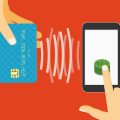Top Ten Things to Keep in Mind for Data Security in Building Mobile Application

Nowadays, mobile phones can do anything:from checking one’s blood pressure to monitoring one’s heart beat. Some mobile applications even allow the user to make current account transactions without physically going to the bank.
However, this convenience comes at a risk since most mobile applications require the client’s personal information. For this reason, the security of customer data is important when building mobile application.
A mobile app developer should keep in mind the following things when creating data security for a mobile application:
1. A Clear Privacy Policy
The user has every right to know how their personal information is stored and secured and the purpose for which it is used. Therefore, the first thing that the mobile app development team has to do is to create a transparent privacy policy. It should include the names of third party firms that will have access to the users’ information. Failure to reveal the data use policies can lead to legal implications for the developer.
2. Control and Alternatives
When building mobile apps, the developer should include controls that allow users to access personal information being shared with third parties and delete the data if they do not feel comfortable. The mobile app should also allow the user to update their personal information whenever necessary.
3. SSL Protocol and Authentication
Avoid third party libraries since they can be used by hackers for man-in-the-middle attacks (MITM). It is always advisable to use native SSL libraries whose source can be properly identified.
Once the communication system is in place, you ought to use mutual SSL authentication with your applications to ensure that your app is interacting with a known server.
4. All Data Should be Encrypted
Your app code and data should be a secret and only few people should know what it means. A hacker should not be able to understand the information on your mobile application or on server. Use techniques such as encrypting all personal and financial data in database along with minification and obsufication to encrypt the code.
It is also advisable to create unique code certificate for your server and your mobile application. This is because root certificates stored in the original server are vulnerable to third party interference.
5. Password Protection
The authentication process should be more solid to make it hard for anyone to guess the password. As a developer, you ought to design applications that only accept strong passwords which consist of numbers, letters, and symbols. For extremely sensitive apps, you can include a two factor authentication, including OTP or biometric scans as additional authentication.
6. A Solid API Protection Policy
The application programming interface (API) is usually responsible for the transfer of information to and from the mobile applications, the users, and the cloud. Due to the fact that API handles sensitive information from a variety of sources, it becomes a priority for you as the mobile app developers to prevent unauthorized personnel from accessing the data. Some security measures that you can use include identification, federation, authentication, delegation, and authorization.
7. Restrict Application Permissions
Ensure that the application does not request for any unnecessary privileges which may put the client data at risk. As a developer, always keep the application commands simple, for example, knowing the location of the client is okay, but asking for permission to access the contact list may be too intrusive and unnecessary.
8. Protection from Interference
Use tempering detection alerts when building mobile apps to prevent third parties from interfering with the normal functioning of the application.
9. Virus Protection
Install a position-independent code during mobile app development to prevent viruses from attacking known memory locations within the application.
10. Install Security Updates
Since new security threats arise every day, you should always test your app against any possible threats and install the latest updates.
Hire Mean Stack Developer | .Net Development | Full Stack Developer
Other articles and publications:
Articles and publications of other companies:
- +1 (732) 588-7500
- 315 W 36th Street
- www.otssolutions.com/











